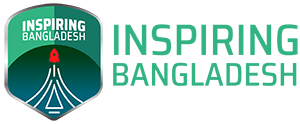Bangladesh invites Korea to invest in subway project
• Total subway length 238km
• 60,000 passengers may commute per hour
The subway system will run alongside the MRT project being implemented by DMTCL
The Bangladesh Bridge Authority plans to build an 11-tunnel subway network in Dhaka to ensure smooth commutes across the city.
The subway system will run alongside the Metro Rail Transit (MRT) being set up by the Dhaka Mass Transit Company Limited (DMTCL).
Funding for the subway project is expected to come from the Korean government through public-private partnership (PPP).
On Saturday, the Bridge Authority presented the Tongi-Sadarghat Subway line proposal to Korean investors at the 3rd Bangladesh-Korea Joint PPP Platform Meeting. The PPP Authority of Bangladesh and Korea Infrastructure and Urban Development Corporation (KIND) co-hosted the virtual meeting.
Kim Hyan-mee, minister of South Korea’s Ministry of Land, Infrastructure and Transport (MoLIT), and Salman F Rahman, private industry and investment adviser to Prime Minister Sheikh Hasina, attended the meeting.
Kim Hyan-mee reiterated her government’s commitment to supporting Bangladesh on the path to becoming a developed country.
“We plan to build a subway network in Dhaka and the Tongi-Sadarghat subway line is a part of it. We expect KIND to invest in the project,” said Bridge Division Secretary Mohammed Belayet Hossain.
He also told Dhaka Tribune the subway had been designed so that it would not conflict with the MRT line.
“We have already held a couple of meetings with the DMTCL to remove any confusion over the two networks,” Belayet said.
11 routes in a web
The Bridge Authority is currently conducting a feasibility study regarding 11 routes that would be spread out across Dhaka in a web pattern.
On Saturday, Bridge Authority senior official Abul Hossain said the length of the first subway channel between Tongi and Sadarghat, through Mohakhali and Malibagh, was 28.32km as per plan. The route will include 24 subway stations.
A further 24 subway stations will be set up on a 26.29km route from Tongi to Jhilmil via Gulshan.
A total of 16 stations will be on a 27.62km route from Gabtoli to Purbachal via Mirpur and Kuril. An 18.17km route from Basila to Mohakhali through Kayetpara will have 15 stations.
A 13km subway route will be constructed from Hazaribagh to Rajarbagh with 12 stations, and a 13.5km route from Kamrangirchar to New Market will have 12 stations.
Altogether 13 stations are planned on an 18km route from Basila to Malibagh, and the same number of stations will be on a 16.5km route from Gabtoli-Hazaribagh to Shatmasjith Road. A 28.6km from Gabtoli-Badda to Purbachal will have 12 stations.
A 19.11km long route from Keraniganj-Saidabath to Kanchpur will have 16 stations, and the 30km Jagannath University-Matuail-Narayanganj route, a 30km subway route, will have just 9 stations.
Benefits
According to the Bridge Authority, a subway system will significantly reduce the pressure of traffic on Dhaka roads. Where 100 buses can carry 10,000 passengers per hour, the subway will be able to transport 60,000 passengers per hour.
Although the potential economic life of a flyover is 50-65 years, the lifespan of a subway is about 100-125 years, officials of the Bridge Authority added.
Bridge Division Secretary Belayet Hossain said: “Sophisticated tunnel boring machines will be used to dig tunnels in the construction of the subways, so there should be very little suffering during construction.”
The Bridge Authority had initially decided to build a 90-km subway in Dhaka. The authority received approval from the public purchase committee last year.
After a successful meeting with DMTCL, the Bridge Authority decided to expand the network. Now the subway is expected to be 238km.
On March 4, 2020, the cabinet committee on public purchase approved a proposal on the subway project. The committee also approved the appointment of a consultant firm for feasibility study and design.
According to the Bridge Authority, the Spanish firm Technica will conduct the feasibility study, while the primary design will cost Tk317.94crore. The feasibility study will be completed by June 2021.







Comments (0)